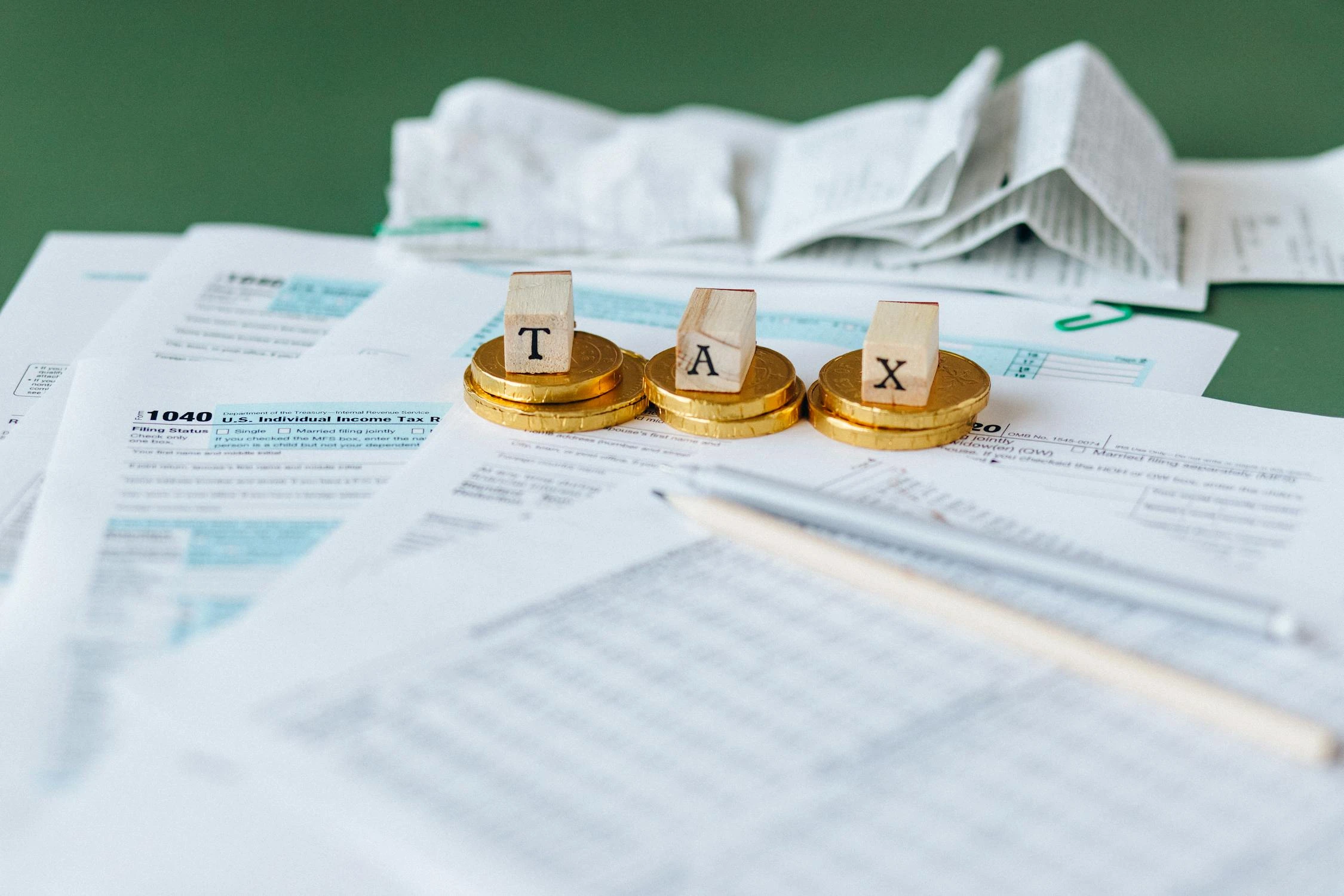Minimize tax risks in 2024 with our top tax safety tips.Learn about compliance, protecting your personal information, and working with professionals to protect your finances and avoid costly errors.

Tax safety tips are guidelines and best practices designed to help individuals and businesses navigate the tax filing process securely and accurately. These tips aim to minimize the risk of errors, penalties, audits, and fraud.
Proper tax safety practices help individuals, students, and business owners comply with regulations and protect their finances from pitfalls such as penalties, audits, and fraud.
In this blog post, we’ll explore essential tax safety tips to help you minimize risks and control your tax situation year-round.
Summary
- Tax safety tips help individuals, students and businesses navigate tax filing accurately and securely.
- Common tax Safety Tips include staying compliant with tax laws, protecting personal information, keeping accurate records among others.
- To minimize risks such as penalties and audits, record-keeping, managing deadlines, and working with reputable tax professionals are profound.
- By adopting these year-round practices, taxpayers can reduce stress, stay informed, and safeguard their financial health.
8 Tax Safety Tips Everyone Must Know
1. Staying Compliant with Tax Laws
Staying compliant with tax regulations is a critical responsibility for both individuals and businesses. It not only protects against legal penalties but also prevents financial risks. Tax laws at the federal, state, and local levels frequently change, making it important to stay informed and up to date.
For instance, a small business owner who fails to stay current with payroll tax changes might face fines during an IRS audit, which could have been avoided by proactively following tax updates.
A prominent example of the consequences of tax non-compliance is the case of Wesley Snipes. In 2008, the actor was sentenced to three years in prison for failing to file taxes. Prosecutors alleged that Snipes earned at least $13.8 million and owed $2.7 million in back taxes for the years in question.
Although Snipes was acquitted of felony tax fraud and conspiracy charges, his co-defendants, Douglas P. Rosile and Eddie Ray Kahn, were convicted on those counts. Kahn, who refused to defend himself, was sentenced to 10 years, while Rosile received 54 months. Both faced additional years of supervised release, underscoring the gravity of tax-related crimes.
Reviewing IRS guidelines and consulting with tax professionals can help avoid such scenarios. If you're uncertain about your obligations, especially regarding complex matters like deductions, income from investments, or side businesses, seeking advice from a certified public accountant (CPA) or tax attorney is highly recommended.
2. Avoiding Common Tax Filing Mistakes
Mistakes on tax returns, even seemingly minor ones, can lead to significant issues such as processing delays, audits, or penalties. A common error is entering incorrect Social Security numbers or using a name that doesn’t match the records with the Social Security Administration.
For instance, one taxpayer shared their experience on an online forum about using TurboTax to e-file their tax return. After submitting it, the IRS rejected the return within 10 minutes, stating that the last name and Social Security number didn’t match.
The taxpayer had recently gotten married but hadn’t updated their last name with the Social Security Administration (SSA). Even after correcting the name with the SSA, they experienced further rejections when trying to refile online.
To avoid these issues, always double-check the accuracy of your returns and consider using tax preparation software or professional services that automatically detect common errors.
3. Protecting Personal and Financial Information
The shift to digital tax filing has increased the risk of identity theft and cyber fraud, making it critical to protect your personal and financial information.
For instance, in 2020, the IRS reported an increase in phishing attempts targeting taxpayers during the filing season. After receiving a fake IRS email, victims unknowingly provided personal details, leading to the theft of their tax refund.
The scammers send messages about your “tax refund” or “tax refund e-statement” which might look legit, but it’s an email or text fake, trying to trick victims into clicking on links so they can steal from you.
To prevent such scenarios, always use encrypted websites for filing taxes, enable two-factor authentication on tax accounts, and be skeptical of any unsolicited calls or emails requesting sensitive information.
Creating strong, unique passwords and keeping tax documents in secure, encrypted digital storage can also provide added layers of protection.
4. Keeping Accurate Records and Documentation
Organized and accurate record-keeping is essential for smooth tax filings and audit protection. For example, a freelancer who doesn’t track business expenses might miss out on valuable deductions, while someone who throws away old receipts may struggle to justify claims during an audit.
The IRS generally recommends keeping tax records for three to seven years, depending on the situation, as this is the window during which audits are most likely. Tools like QuickBooks or cloud-based accounting software can help individuals and businesses keep a running log of expenses and income, simplifying the tax preparation process and ensuring documentation is available if needed.
Related Read:
5. Avoiding Tax Scams and Fraud
Tax scams are increasingly sophisticated, with criminals impersonating IRS officials via phone calls, emails, and even text messages. One common scam involves fraudsters calling individuals and threatening arrest if immediate payments aren't made, which has led to many people falling victim and losing large sums of money.
A notable case is the "IRS phone scam," which has bilked taxpayers out of millions of dollars over several years. To avoid becoming a victim, always remember that the IRS will never initiate contact via phone, email, or social media to demand payment. If you receive suspicious communications, report them immediately to the IRS and avoid sharing any personal information over unsecured channels.
6. Penalty Prevention and Managing Tax Deadlines
Missing tax deadlines can result in penalties and interest charges that accumulate over time. For example, a freelance consultant who forgot to pay estimated quarterly taxes might find themselves facing a hefty bill at the end of the year, along with penalties for underpayment.
To avoid these issues, use digital calendars or tax software to track important deadlines for filing returns and making payments.
Filing early or requesting an extension if necessary ensures that you have enough time to prepare your return accurately without facing last-minute stress or errors.
7. Minimizing the Risk of a Tax Audit
While only a small percentage of tax returns are audited each year, certain actions can increase your chances of being selected. For instance, individuals who claim disproportionately large deductions relative to their income may attract the attention of the IRS.
For instance, a taxpayer with modest earnings claiming excessive charitable contributions can trigger an audit. To minimize your risk, ensure that all claims are legitimate and properly documented.
Keep thorough records of all deductions and credits, including receipts and invoices, and ensure that you report all sources of income. If you do get audited, responding promptly and providing the requested documentation can help resolve the issue efficiently.
8. Working with Professional Tax Preparers
Hiring a tax professional can provide peace of mind, particularly for those with complex financial situations or businesses. However, it’s crucial to choose a qualified and reputable tax preparer.
In January 2023, two tax preparers from North Carolina, Betty Hawkins and Phyllis Ricks, were sentenced to 24 and 36 months in prison, respectively, for conspiring to file false income tax returns on behalf of their clients.
Their fraudulent activities resulted in approximately $5.2 million in restitution. The risks associated with working with unqualified or unscrupulous tax preparers is enormous. To avoid this, ensure your tax preparer has proper certifications, such as being a CPA or an enrolled agent.
Here are some quick things to check:
- Check their track record
- Read client reviews
- Verify their standing with professional organizations.
- Check their rating with the Better Business Bureau.
Final Thoughts!
Conclusively, adopting key tax safety practices is essential for securing your finances and staying compliant with tax laws.
You can minimize risks such as penalties, audits, and fraud by staying informed, safeguarding personal information, keeping accurate records, and working with reputable professionals.
Practicing these strategies throughout the year will not only help you avoid costly errors but also ensure your financial well-being during tax season and beyond.
FAQs
1. How can I protect my personal information from tax-related identity theft?
Avoid sharing your Social Security number or tax info through unsecured methods. Use strong passwords, enable two-factor authentication, and file early to prevent fraud.
2. What are the best practices for securely storing tax documents and records?
Store documents in encrypted digital storage or a fireproof safe. Keep records for 3–7 years, and shred old paper copies to prevent unauthorized access.
3. How can I avoid falling for tax scams or fraudulent schemes in 2024?
Be cautious of unsolicited IRS communications and verify legitimacy through official channels. Avoid tax preparers promising unusually large refunds.
4. What should I do if I suspect that I have made an error on my tax return?
File an amended return using Form 1040-X to correct mistakes. Act quickly to avoid penalties and minimize any potential issues.
5. What is a common tactic used by cybercriminals during tax season?
Phishing scams are common, where fraudsters pose as the IRS or financial institutions to steal personal information. Always verify any suspicious communications.

